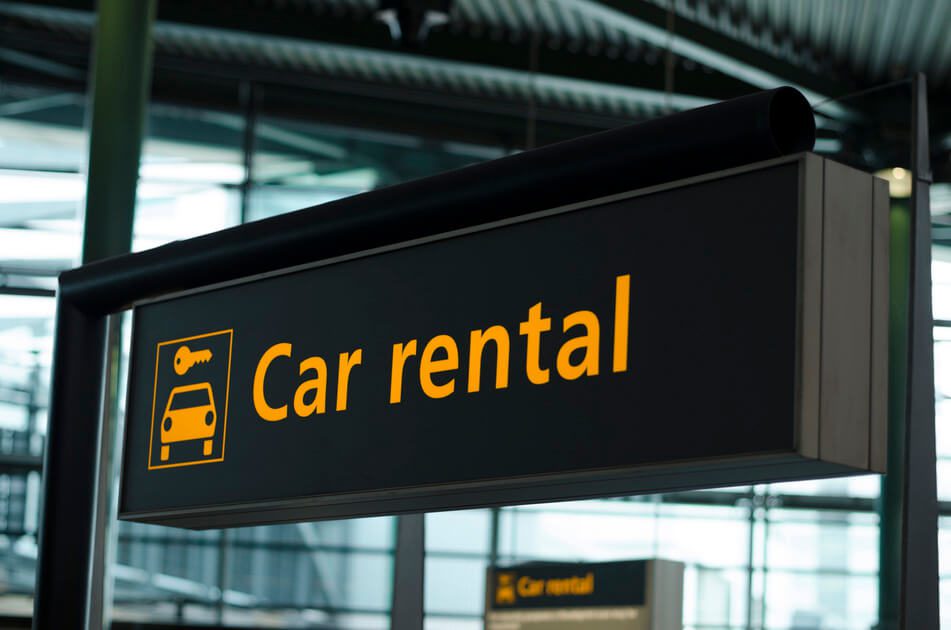
You’re standing at the counter waiting for the keys to your rental when you’re asked that question we all dread. Do you want to buy the extra rental car insurance coverage?
Your mind races. Is it worth the additional $15 to $30 per day? Won’t your personal auto insurance cover you? How about your credit card? Do you really need it or should you just take your chances and hope for the best?
The answer is simple: It’s complicated.
Personal Car Rentals
When renting a car for personal use, not only do you have to worry about getting into an accident, but you also must consider what would happen if the car was stolen or if it was otherwise damaged, for example by a tree limb or hail. If you do get into an accident, you need to consider the damage to the other vehicle as well as injury to any other parties involved.
The first step is to find out what your personal auto insurance covers. If you have comprehensive and collision coverage, it’s likely that you’ll be covered for damage to the car in the event of an accident.
However, remember that car rental facilities are a business and if they can’t rent out that car when you’re done, they’re losing money. You’ll want to check with your auto insurance carrier to see if you’re covered for what’s known as loss-of-use fees. If you’re not, consider picking up the Collision Damage Waiver coverage at the time you pick up your rental.
Next, consider liability coverage, which is what protects you from lawsuits including for damage to property and injuries to others. Liability insurance is required in all states except New Hampshire, so if you have a personal auto policy, you probably have at least the state-mandated limits for liability coverage. However, it’s important to note that these mandated limits vary by state and are rarely enough to fully protect your assets.
According to the most recent data from the Insurance Information Institute, nearly 13% of drivers were uninsured in 2015. This number does not even account for under-insured motorists – those drivers who only buy minimum limits. Even if the other driver has adequate limits, you’ll be out your deductible plus loss-of-use and the cost of repair to the car until the claim is settled between the insurance carriers.
The Bottom Line on Rental Car Insurance
If you do not own a car and do not have any personal auto insurance and you’re renting a car for personal use, you’ll usually want to purchase any rental car insurance coverage that is available to you from the rental company. If you’re covered by a top-tier insurance carrier for auto and you have adequate personal liability insurance (not just auto liability), you may be able to waive coverage at the car rental counter without significant risk.
Also, check with the issuer of the credit card you intend to rent the car with as you may have some coverage there (it’s a myth that all credit cards cover auto rentals).
If you’re traveling outside of the United States or Canada, keep in mind that your personal auto insurance will not typically apply and isn’t a suitable replacement for rental car insurance. The top-tier carriers provide some protection overseas, so you’ll want to check with your agent.
Renting a Truck or Van
If you’re renting a truck or van from either a home improvement store or from a moving equipment and storage rental company (think Home Depot or U-Haul), take the coverage you are offered. Your personal auto insurance will not apply.
You Can Buy Peace of Mind
Your first defense when renting a car is always to know your coverages. Working with a reliable agent can help mitigate some of the fears of being inadequately covered for your own unique circumstances. There are various levels of auto insurance and discussing your expectation of renting cars before purchasing the policy can ensure you get the coverage you need. Buying a discount policy can leave you unprotected.
If you’re standing at the counter and you’re not sure what to do, take the coverage. But before you rent again, check in with your agent and know your risk!
This post has been updated from its original run on November 2, 2015.
All insurance policies are different. Be sure to review your insurance policy for specific information about coverages available to you. Nothing in this post is meant to suggest a guarantee of coverage.
